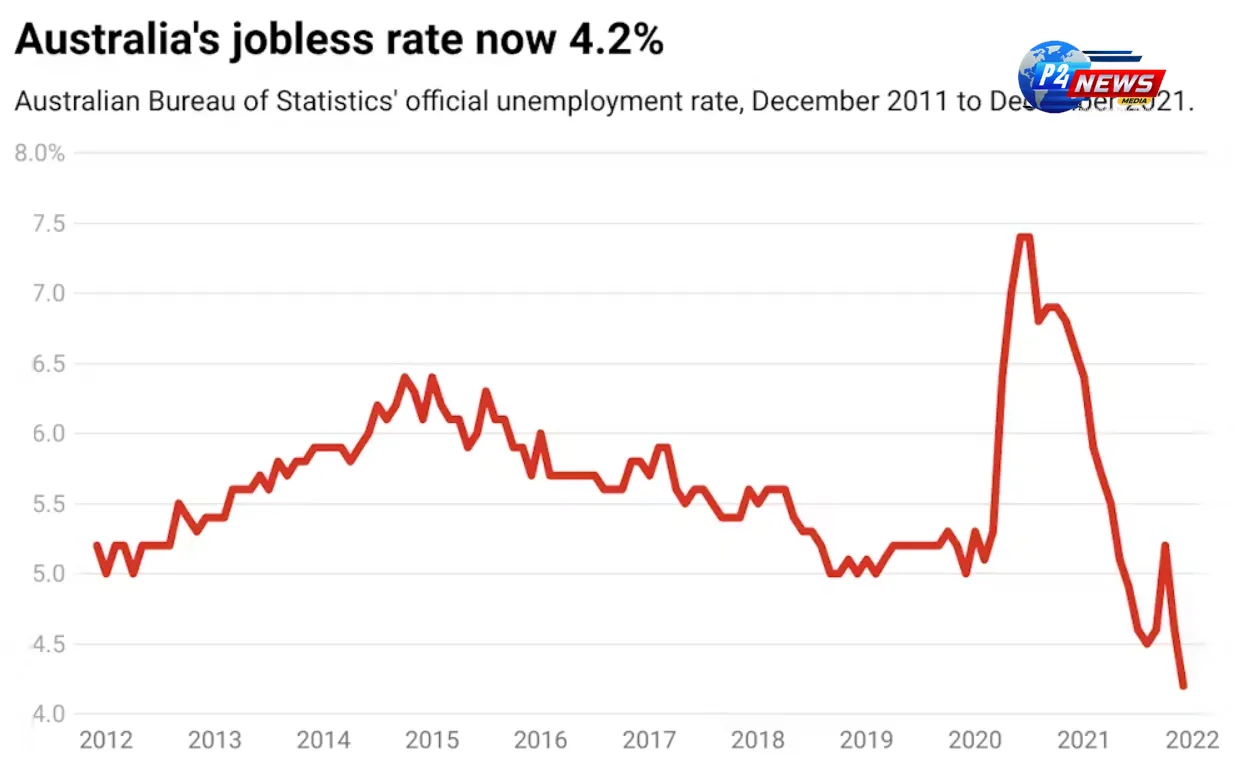In November, Australia's unemployment rate fell to 3.9%, down from 4.1%, as reported by the Australian Bureau of Statistics. This figure exceeds market expectations, which predicted a rate of 4.2%, indicating a stronger job market than anticipated.
In November, Australia's unemployment rate fell to 3.9%, down from 4.1%, as reported by the Australian Bureau of Statistics. This figure exceeds market expectations, which predicted a rate of 4.2%, indicating a stronger job market than anticipated.
The Australian Employment Change for November showcased a remarkable increase, reaching 35.6K, a significant rise from October's figure of 12.1K, which had seen a revision from an earlier estimate of 15.9K. This surge exceeded the anticipated consensus forecast of 25.0K, indicating a stronger-than-expected labor market performance. Such positive results can have profound implications for economic stability and growth, potentially influencing monetary policy decisions by the Reserve Bank of Australia.
On the international stage, Australia recently demonstrated its diplomatic stance at a United Nations emergency special session held on Thursday. During this session, Australia aligned its vote with the considerable majority of nations supporting two resolutions. This decision set it apart from the voting stance of the United States and Israel, who opposed the resolutions. Such actions reflect Australia's commitment to global humanitarian issues and its willingness to stand firm with the international community on significant matters.
The market response to Australia’s employment report has been notable. As of the latest updates, the AUD/USD exchange rate experienced a rise of approximately 0.60%, trading at 0.6409. This upward movement illustrates a positive investor sentiment towards the Australian Dollar in light of favorable employment data, indicating confidence in the nation's economic trajectory. Movements in currency pairs can often reflect underlying economic conditions, and traders closely monitor such indicators to inform their investment strategies.
Several critical factors influence the dynamics of the Australian Dollar (AUD). Primarily, the interest rates dictated by the Reserve Bank of Australia (RBA) play a pivotal role. The RBA's monetary policy decisions, particularly concerning interest rate adjustments, can significantly affect the value of the AUD. Higher interest rates tend to attract foreign investment, thereby strengthening the currency, while lower rates might have the opposite effect.
Another vital element impacting the AUD is the pricing of iron ore, Australia’s most significant export. As a resource-rich nation, fluctuations in the global demand for iron ore directly correlate with the economic health of the country. The price volatility of this commodity can lead to considerable changes in Australia’s trade balance and overall economic performance.
The economic conditions in China, Australia's largest trading partner, are also critical to the strength of the Australian Dollar. Any shifts in China's economic growth can resonate throughout the Australian economy, affecting demand for exports and ultimately influencing the value of the AUD. In addition, domestic inflation rates in Australia and the overall growth trends contribute to shaping market perceptions regarding the currency.
Moreover, market sentiment plays an essential role in driving the movement of the AUD. Investors' attitudes toward risk can dictate their asset allocation strategies. During periods characterized as 'risk-on,' investors tend to seek higher returns through riskier assets, which generally leads to a stronger AUD. Conversely, in 'risk-off' scenarios where investors prioritize safety, the demand for the AUD may diminish as they turn to safer havens.
In summary, the interplay of various factors including interest rates, commodity prices, international relations, and market sentiment is crucial in determining the direction of the Australian Dollar. As such, investors and market watchers remain vigilant, keeping a close eye on developments both domestically and globally that could influence the currency's trajectory.
Like
Dislike
Love
Angry
Sad
Funny
Pray
'Trump Tracker: Tulsi Gabbard's Surprising Appointment as US Intelligence Chief
November 14, 20249th Ayurveda Day in Melbourne: A Celebration of Ayurvedic Innovations and Global Health Impact
November 10, 2024🍪 We Value Your Privacy and Experience Hi there! We use cookies to enhance your browsing experience, provide personalized content, and analyze site traffic. By continuing to use our site, you consent to our use of cookies.







Comments 0